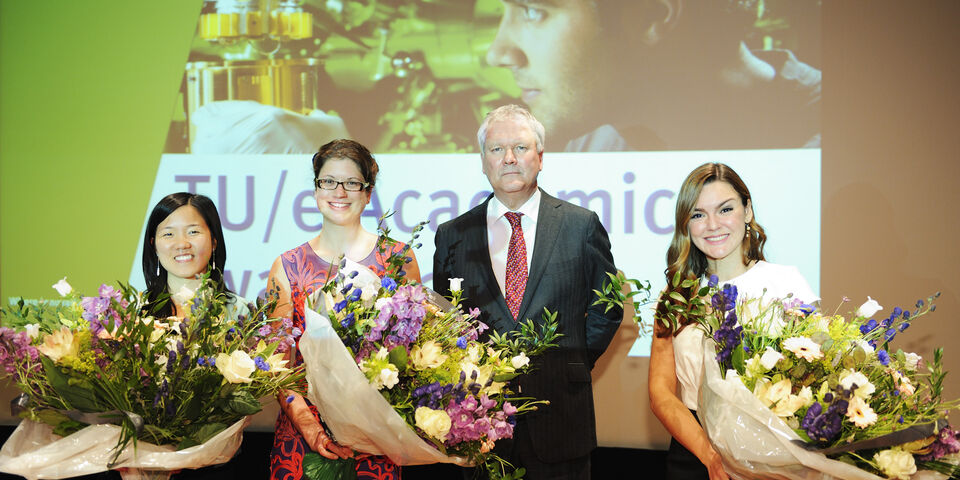Women dominate academic year prizes TU/e
At the closing of the academic year, which TU/e celebrated officially for the first time on Friday, July 5, the TU/e Academic Awards 2013 were presented. With the awards, the university wants to put the best thesis, best design report, and the best doctoral project in the limelight. This year for the first time, the awards ceremony was a women’s affair entirely.
A total of eleven candidates were nominated for best thesis. Natasha Holz Amorim de Sena, MSc, of the Department of Built Environment won the academic award for her graduate thesis ‘Ilhas: filling the gaps’. The project ran in Porto and focused on the ‘Ilhas’, the Portuguese name for the tiny homes that were built in the nineteenth century. There are still some thousand left, housing approximately 13,000 people. De Sena developed a plan that allowed the people living in Ilhas to improve their housing situation, and their social, financial, and physical situation on their own.
Eight were nominated in the category best design report. The prize was awarded to Si Zeng, MSc PDEng of the Department of Chemical Engineering & Chemistry. Her report ‘Separation of Carbonates from Alcohols in Alternative DMC Synthesis Routes’ was realized under supervision of prof.dr. Jan Meuldijk (Process and Product Design). Dimethylcarbonate (DMC) is a versatile and environmentally friendly product that can be used as a solvent for coating material, for example. However, DMC has its downsides as well, including high energy consumption and tricky separation processes. Zeng focused on a Rotating Disk Contractor (RDC) and the use of Phenol, resulting in the separation processes requiring demonstrably less energy.
In the category best doctoral project there were sixteen nominees. Maartje Bastings won. Five years ago she wrote a research proposal that landed her an NWO top talent grant of €180,000. In the group of prof.dr. Bert Meijer (Molecular Science and Technology) she researched medical implementations of biomaterials, especially ways to add protein clusters to biomaterials to improve cell interaction.


Discussion